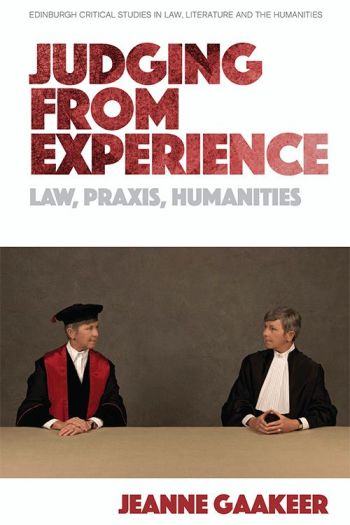Judging from Experience: Law, Praxis, Humanities
ISBN13: 9781474442497
Published: November 2020
Publisher: Edinburgh University Press
Country of Publication: UK
Format: Paperback (Hardback in 2019)
A unique application of philosophical hermeneutics, literary theory and narratology to the practice of judging
Combining her expertise in legal theory and her judicial practice in criminal law in a Court of Appeal, Jeanne Gaakeer explores the intertwinement of legal theory and practice to develop a humanities-inspired methodology for both the academic interdisciplinary study of law and literature and for legal practice.
This volume addresses judgment and interpretation as a central concern within the field of law, literature and humanities. It is not only a study of law as praxis that combines academic legal theory with judicial practice, but proposes both as central to humanistic jurisprudence and as a training in the conduct of public life. Drawing extensively on philosophical and legal scholarship and through analysis of literary works, Gaakeer proposes a perspective on law as part of the humanities that will inspire legal professionals, scholars and advanced students of law alike.
Key Features:
Focuses on the importance of judging for the humanities
Combines legal theory and legal practice to show the importance of the bond of theory and practice in law and legal theory
Incorporates the findings of philosophical hermeneutics and narratology for our continued thought on the position of law and literature, and law and the humanities as interdisciplinary movements
Creates philosophical–hermeneutical building blocks for a methodology for the humanistic study of law as praxis, and
Reflects on interdisciplinarity in legal studies against a backdrop of the tension between the natural sciences and the humanities
Literary case studies include:
- Gustave Flaubert’s Bouvard and Pécuchet
- Robert Musil’s The Man without Qualities
- Dutch poet Gerrit Achterberg’s asylum poems
- Pat Barker’s Regeneration
- John Coetzee’s Disgrace
- Ian McEwan’s The Children Act
- Michel Houellebecq’s Atomised, and
- Juli Zeh’s The Method
